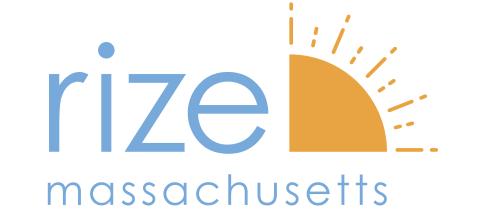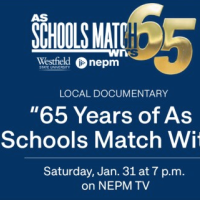
Inclement Weather Delay - Monday, Jan. 26, 2026
Due to inclement weather, WSU will be closed Monday, January 26, 2026. A campus parking ban will be in place beginning Saturday, January 24, at 6:00 p.m. See your WSU email for more info.
Westfield State University to Participate in Harm Reduction Training Scholars Internship Program

RIZE Massachusetts, an independent nonprofit foundation solely dedicated to funding and creating solutions to end the overdose crisis in Massachusetts, will expand its Harm Reduction Training (HaRT) Scholars program, a specialized internship that is developing a pipeline of social workers trained in harm reduction, to Westfield State University.
RIZE will grant $478,452 through May 2024 to start the HaRT Scholars program at Westfield State, while continuing the programs at Boston College, Bridgewater State University and Simmons University. Created in June 2021, the grant program was the first of its kind in the country and has supported paid internships and specialized training for 32 HaRT Scholars in harm reduction, a clinical approach to preventing deaths and improving care for people suffering from opioid use disorder (OUD). The program also receives funding support from the Massachusetts Executive Office of Health and Human Services.
“The Westfield State University MSW program places emphasis and value on the development of students who will practice in their areas of competence, maintain ethical standards, and demonstrate leadership within their community as practitioners committed to addressing social, racial, and economic injustice,” said Dr. Rose Sullivan, Ph.D., LICSW, Chair of the Social Work Department at Westfield State. “Given the mission of our MSW program, we are thrilled to receive the RIZE grant to enable us to support our diverse student body to provide high quality clinical services in the community.”
“RIZE is proud to extend and expand the HaRT Scholars program through 2024 and excited to welcome Westfield State to the program,” said Julie Burns, president and CEO of RIZE Massachusetts. “Evidence continues to demonstrate the positive, life-saving impact of harm-reduction practices. We are pleased to partner with these four outstanding schools of social work as they incorporate harm reduction education and training into their curricula for social workers who will serve on the front lines of the opioid epidemic.”
The HaRT Scholars program has multiple benefits. Master of Social Work degree students receive paid internships and specialized harm reduction training. In turn, harm reduction training sites receive increased clinical presence and a modest financial payment to offset time for intern supervision. Additionally, each of the participating universities promote the HaRT Scholars program to students who identify as Black, Indigenous, and people of color to increase the presence of racially and ethnically diverse social workers in the field.
Harm reduction is an approach that focuses on reducing the negative consequences of drug use and supporting individuals in embracing any positive change in their lives and health. The interventions can include a range of services such as syringe exchange, overdose education, naloxone distribution and drug checking. Harm reduction itself should not be seen as a way to end opioid use, but rather as a survival plan that keeps people alive and safe until they decide to move onto a clinical treatment phase, and then hopefully, onto full recovery.
“I was always interested in working in the mental health and substance use fields, but prior to the HaRT Scholars program I wasn’t aware of a pathway I could pursue beyond more traditional forms of substance use treatment,” said Shannon Goyette, a behavioral health clinician at Brockton Neighborhood Health Center, where she completed her internship as a student. “I felt so passionate about my placement in Brockton, which showed me how harm reduction is grounded in human rights and saving lives. I can’t see myself working in a non-harm reduction setting.”
Harm reduction is an approach that focuses on reducing the negative consequences of drug use and supporting individuals in embracing any positive change in their lives and health. The interventions can include a range of services such as syringe exchange, overdose education, naloxone distribution and drug checking. Harm reduction itself should not be seen as a way to end opioid use, but rather as a survival plan that keeps people alive and safe until they decide to move onto a clinical treatment phase, and then hopefully, onto full recovery.


